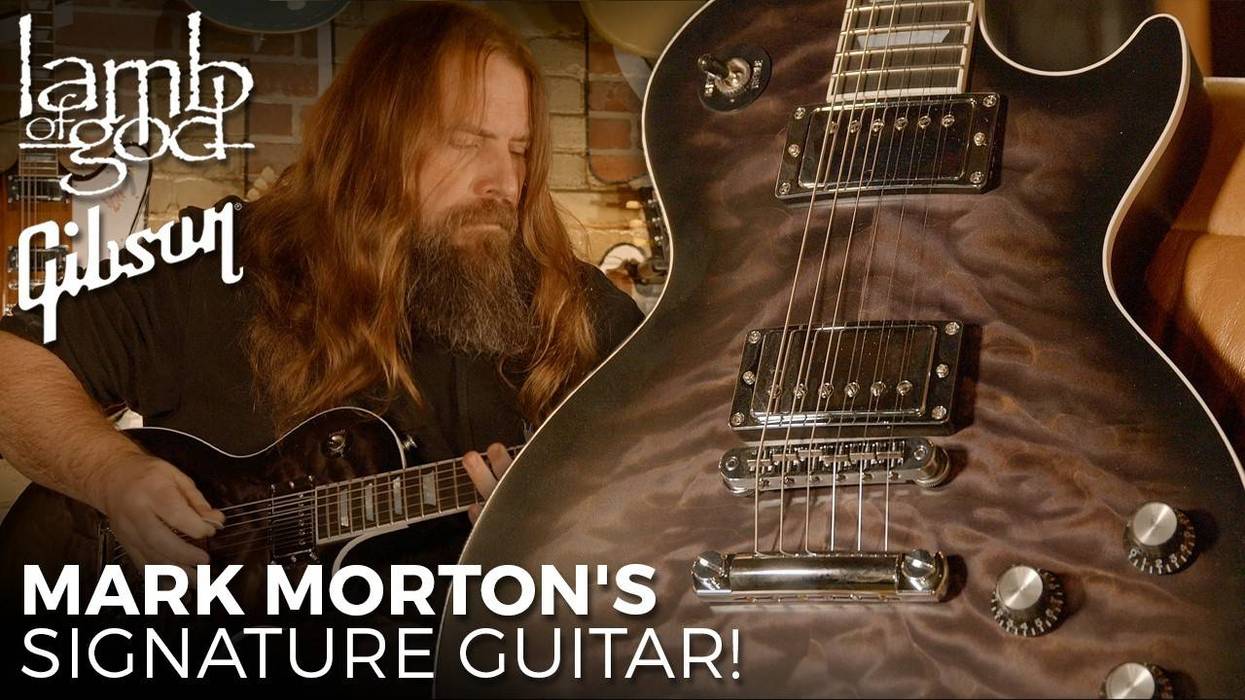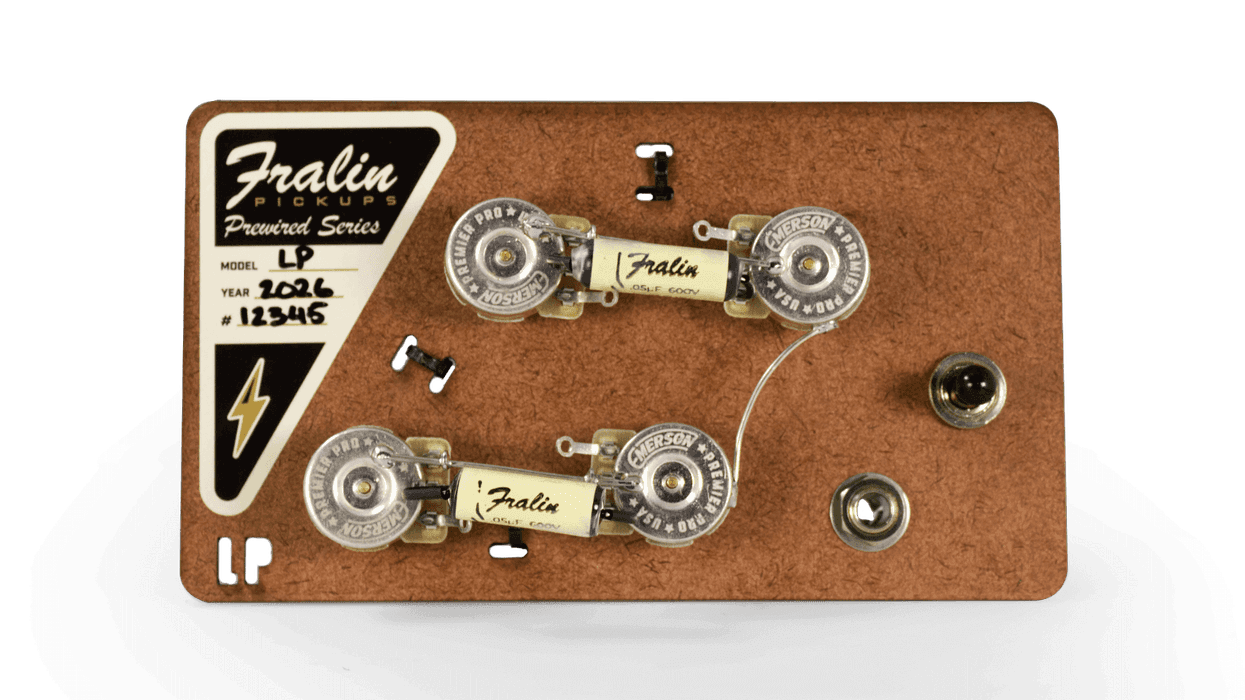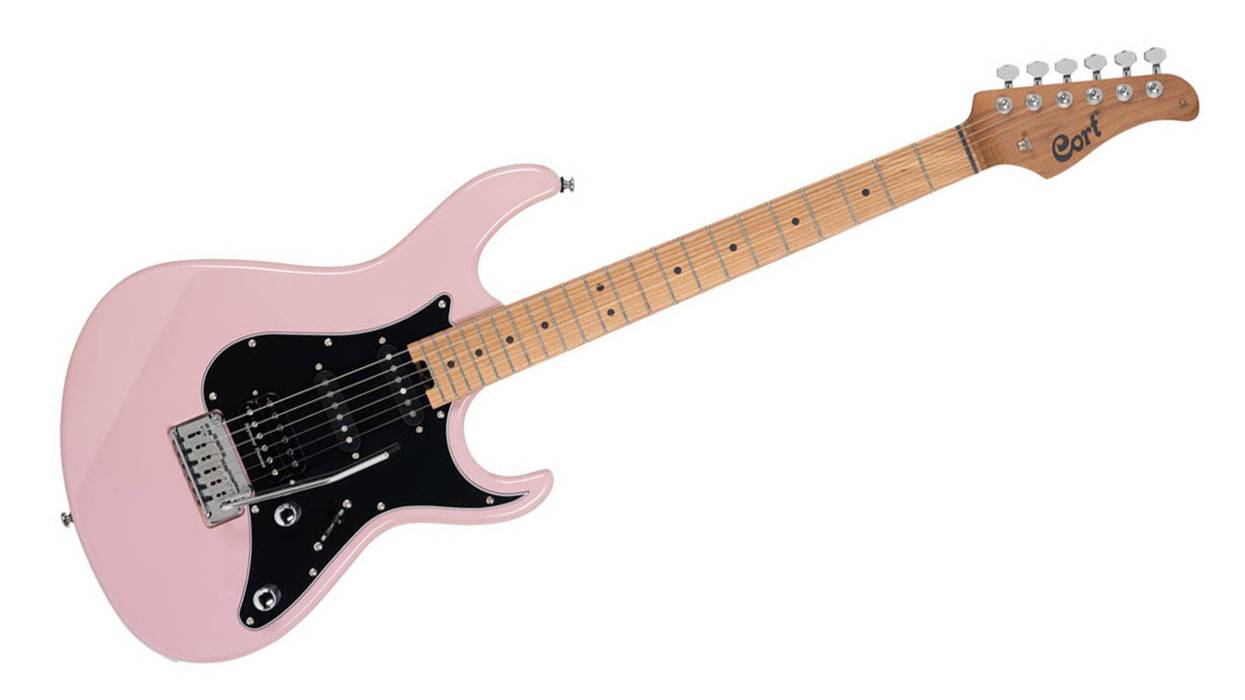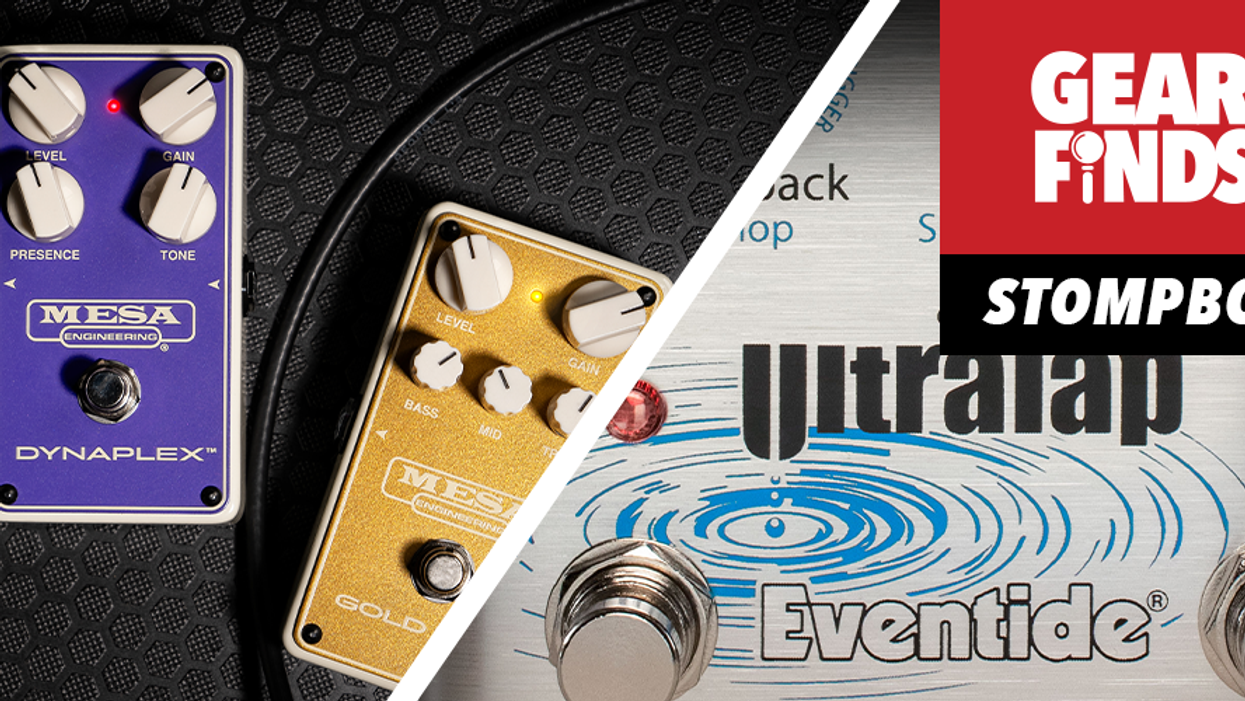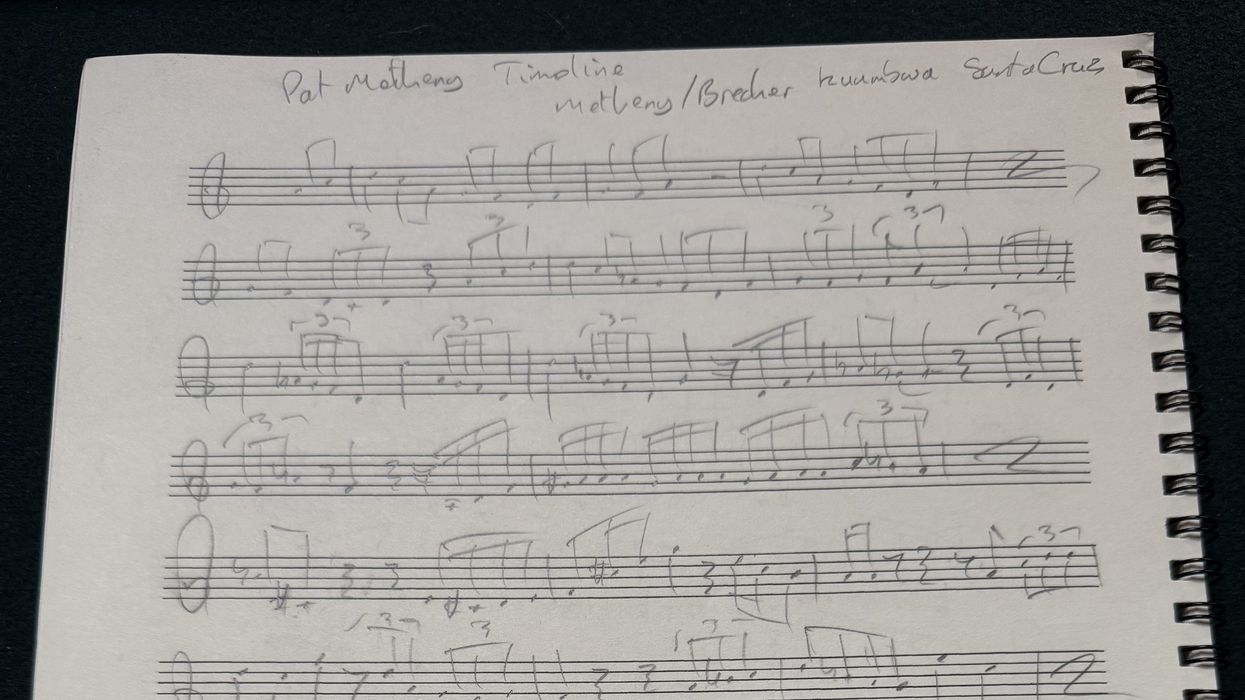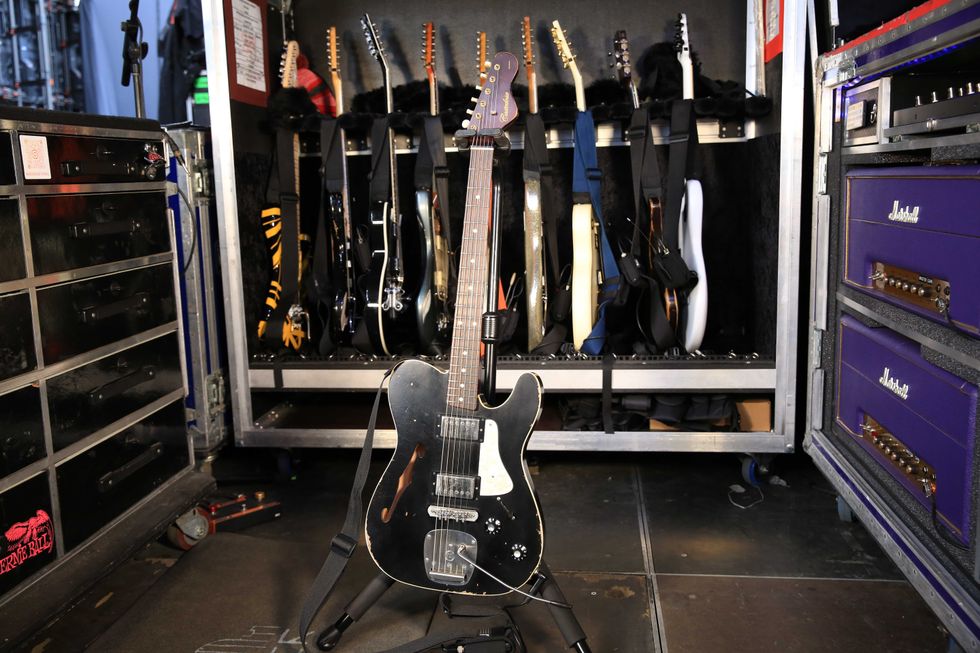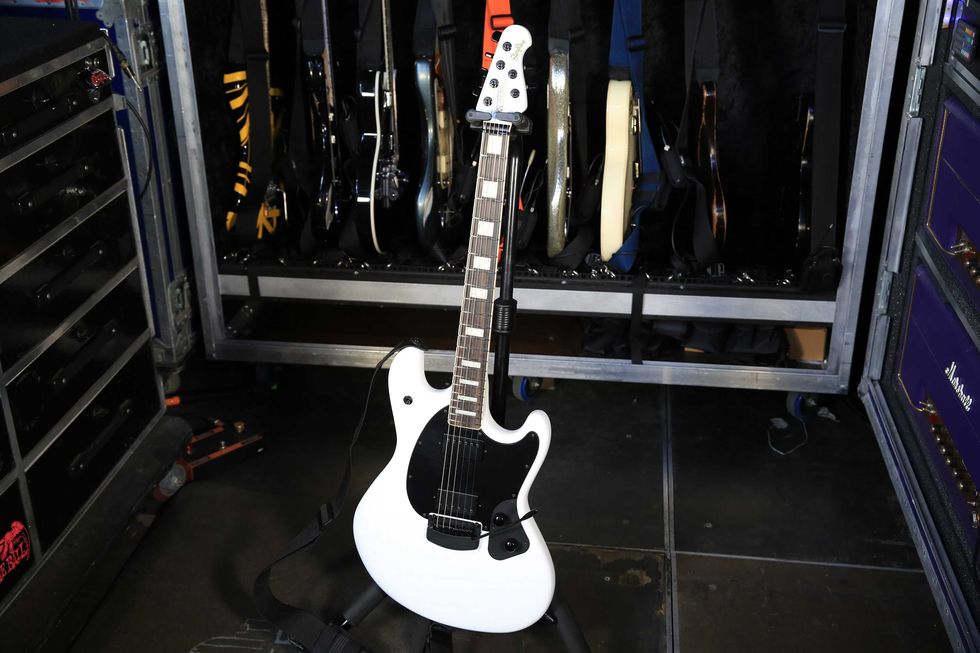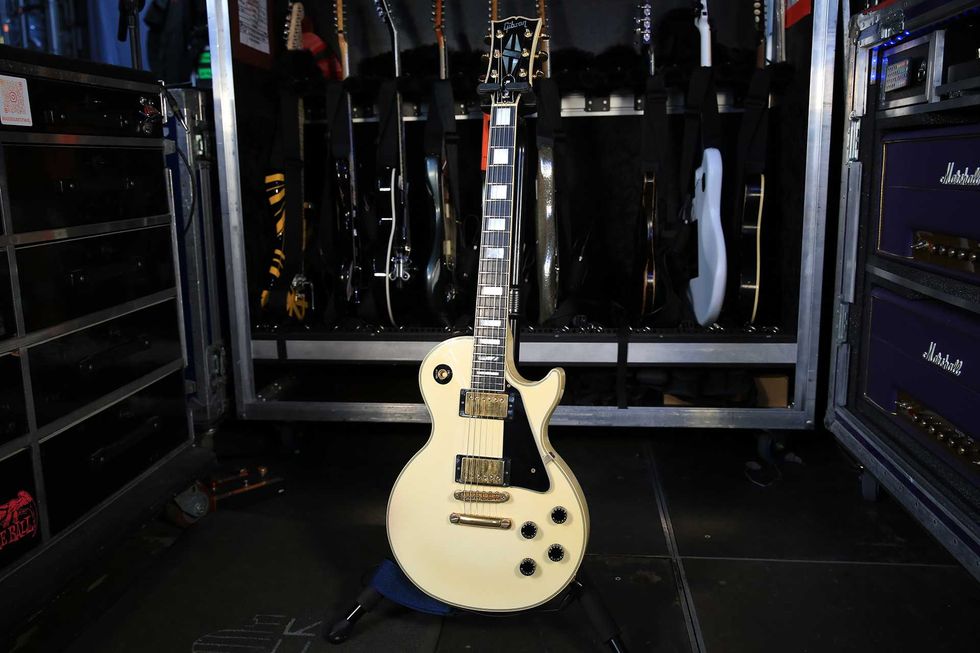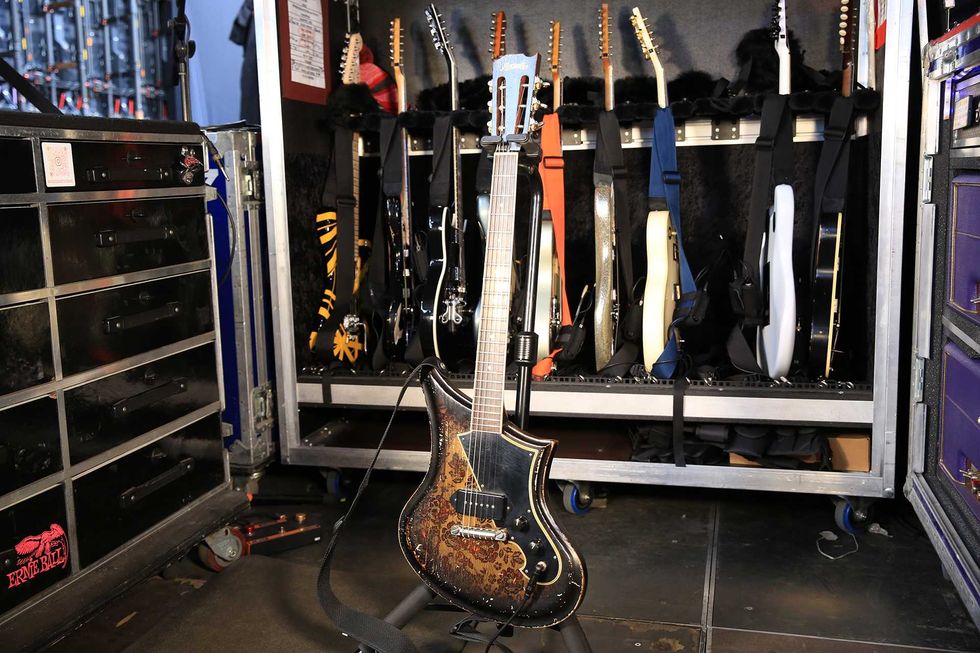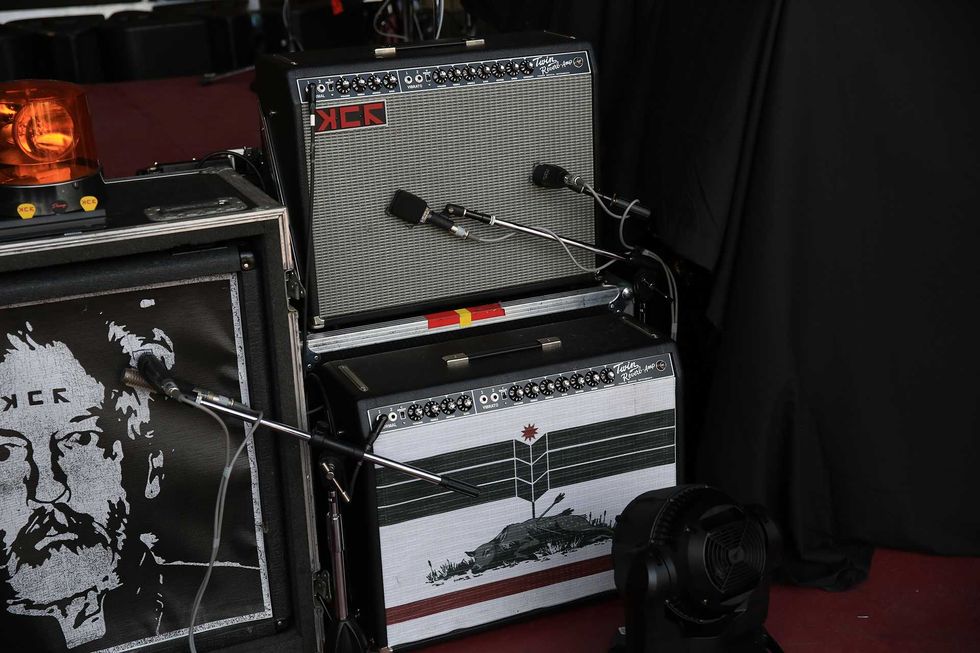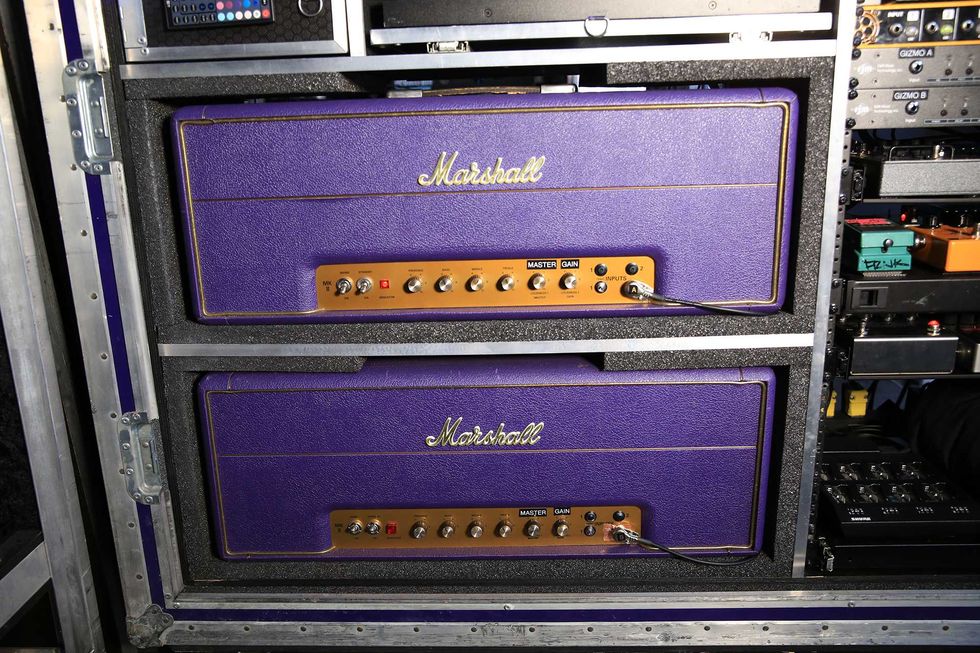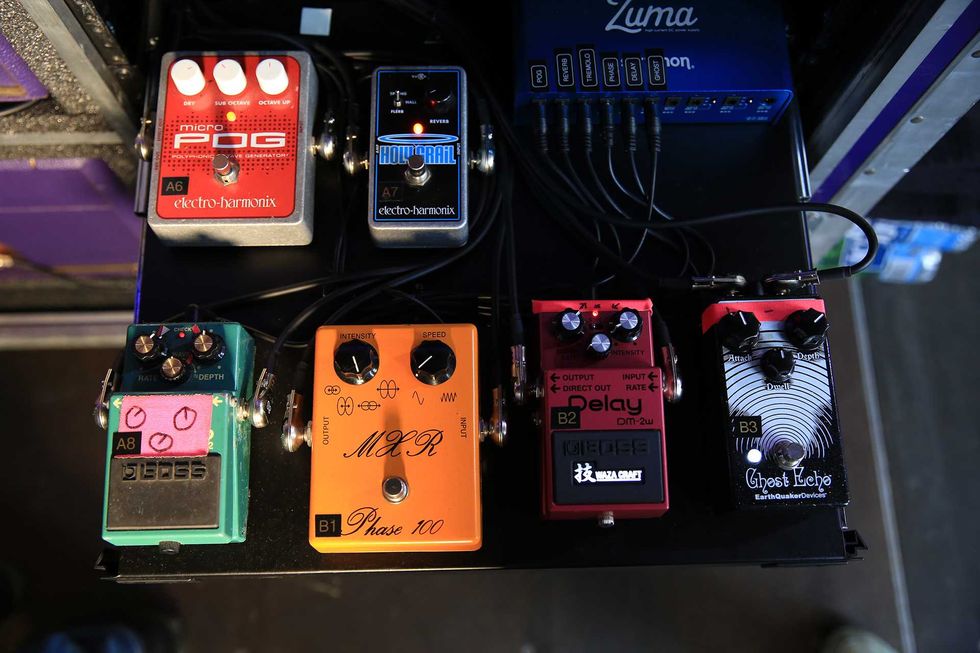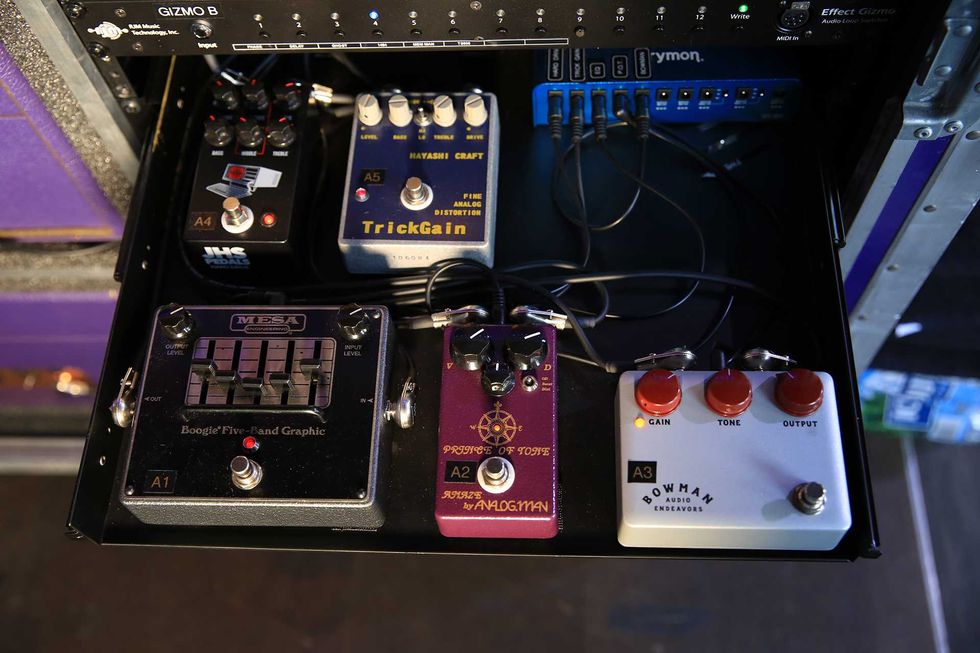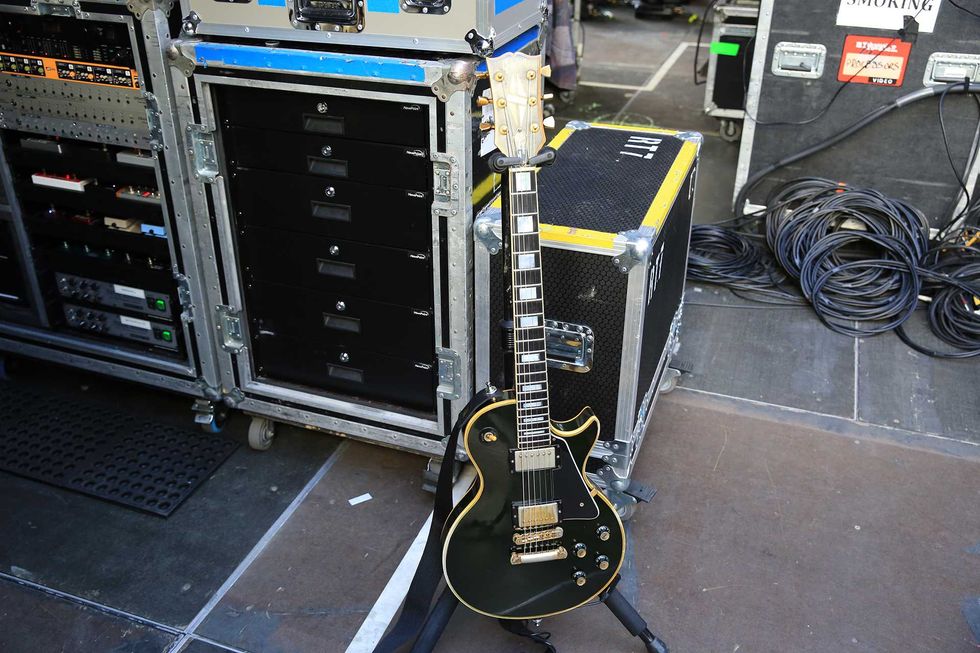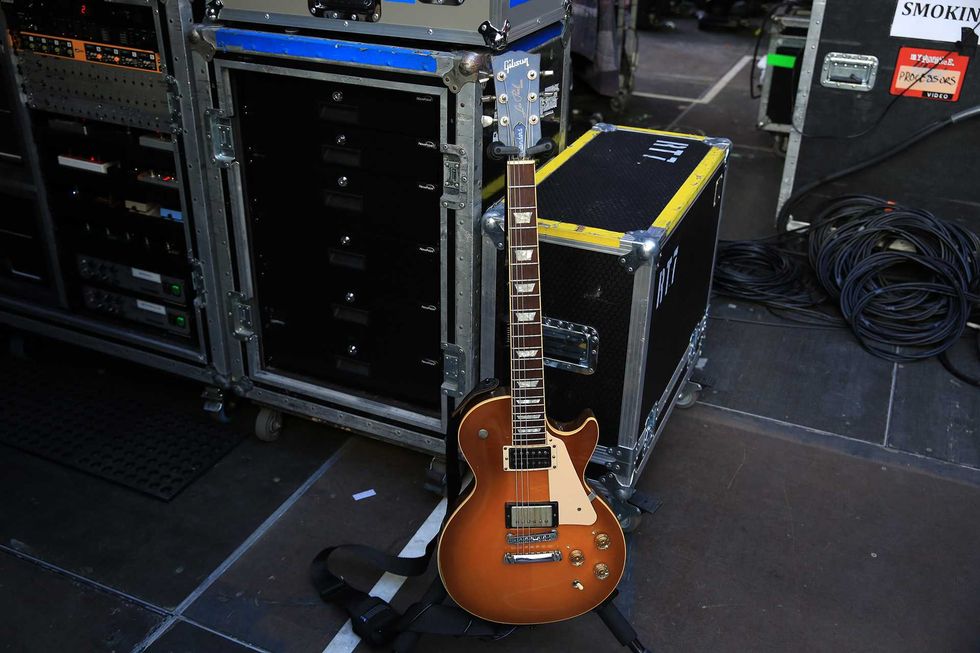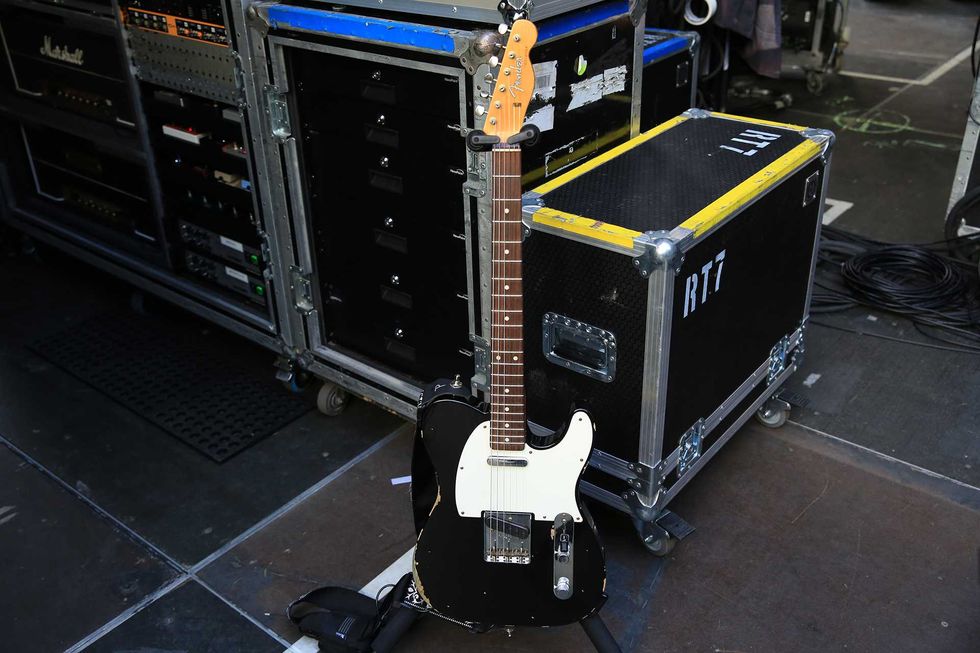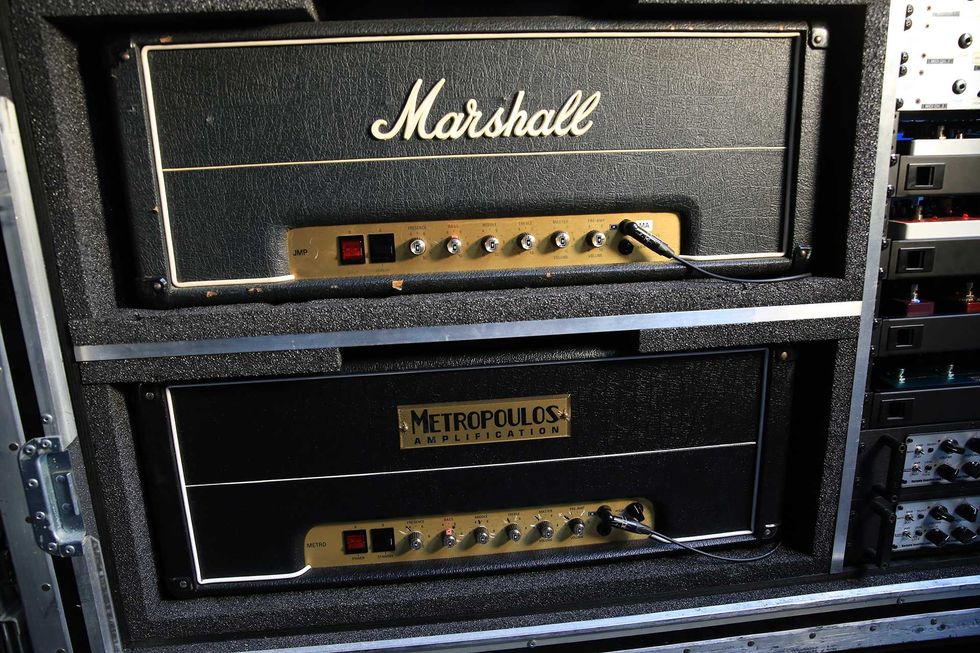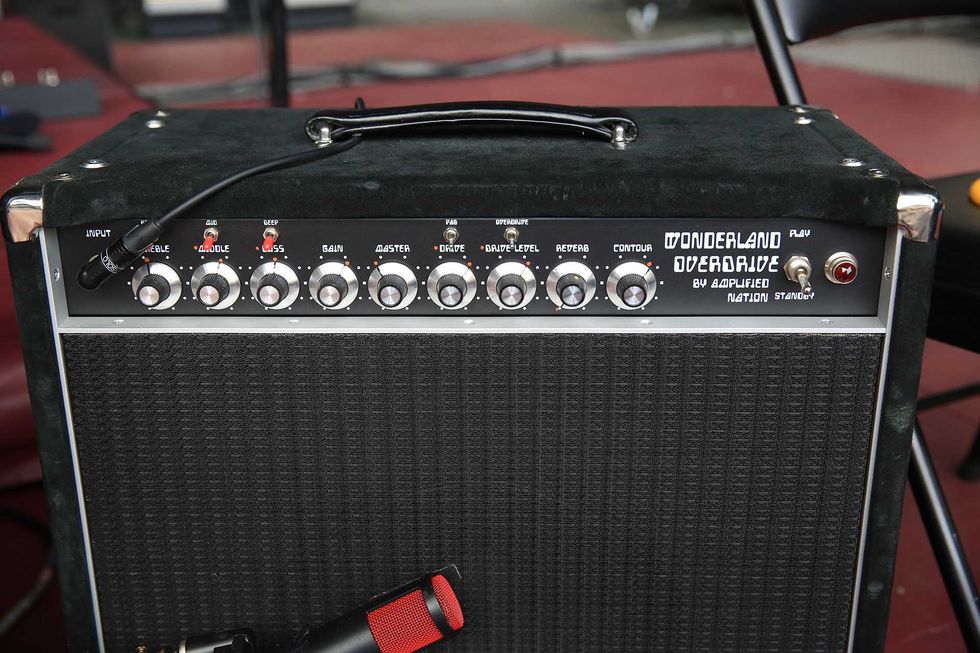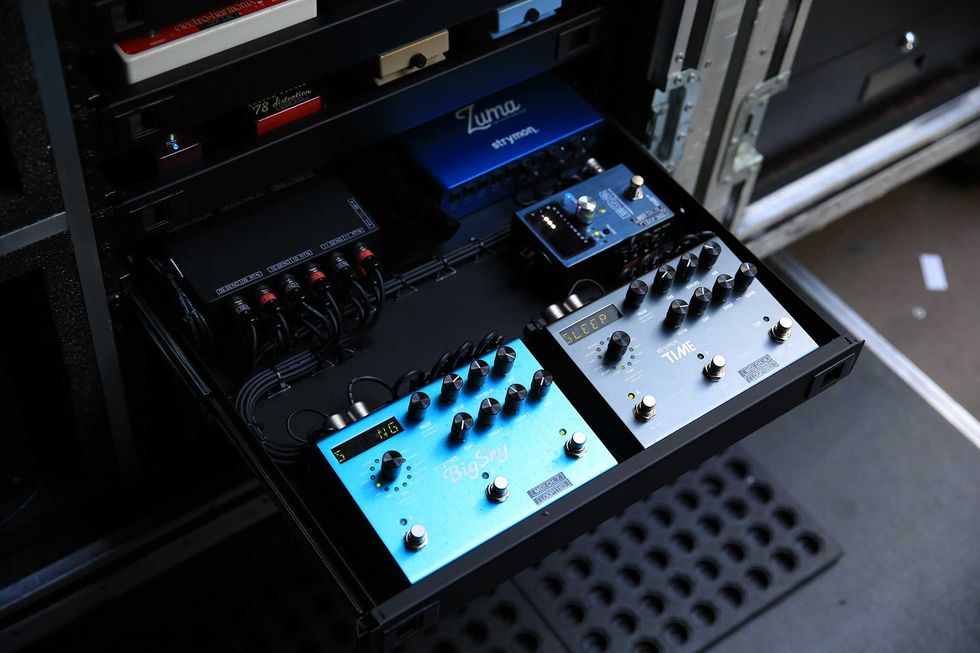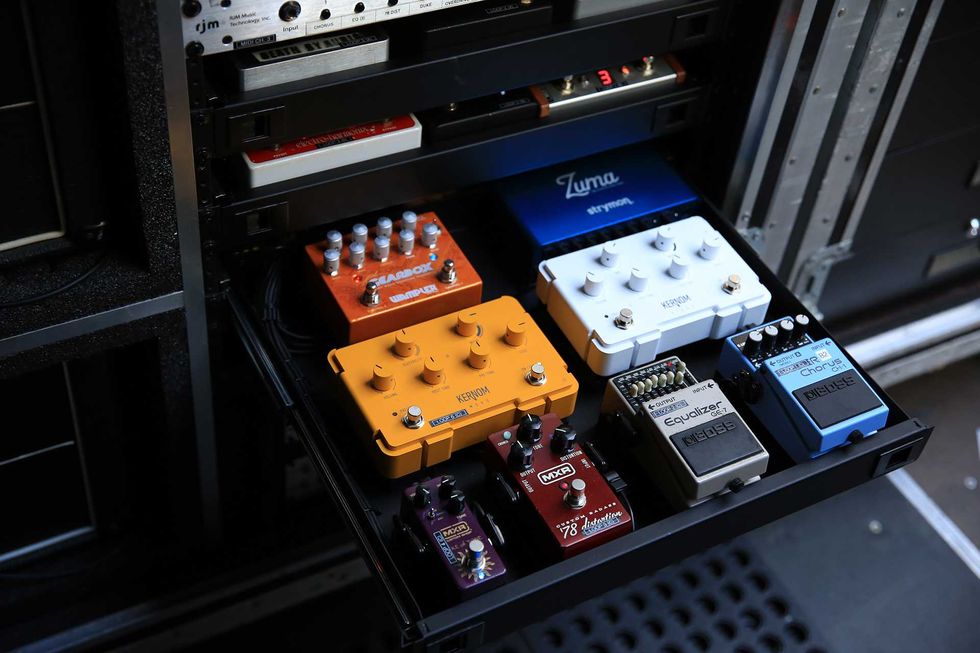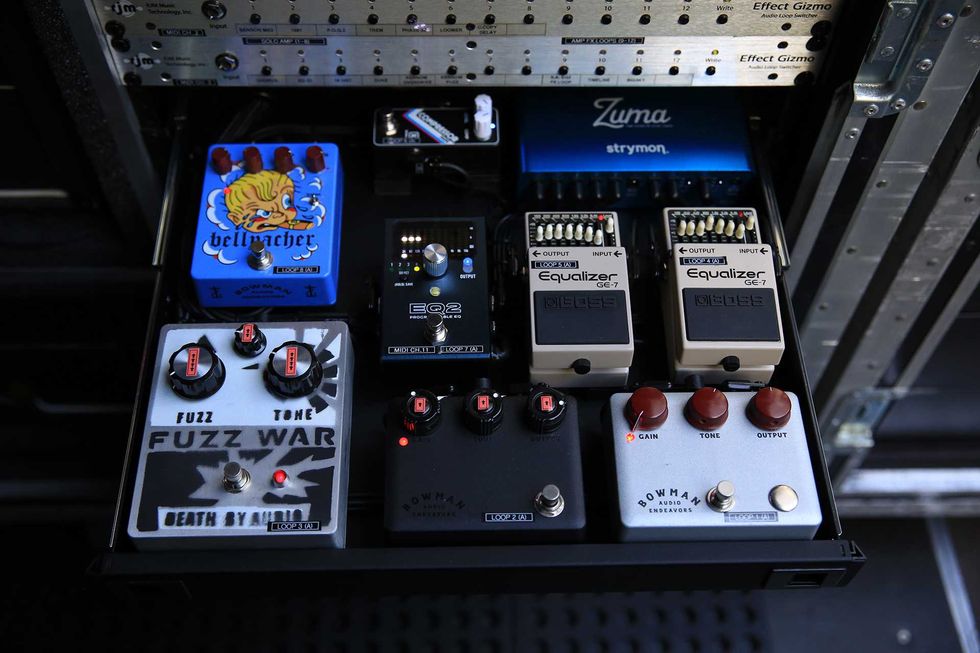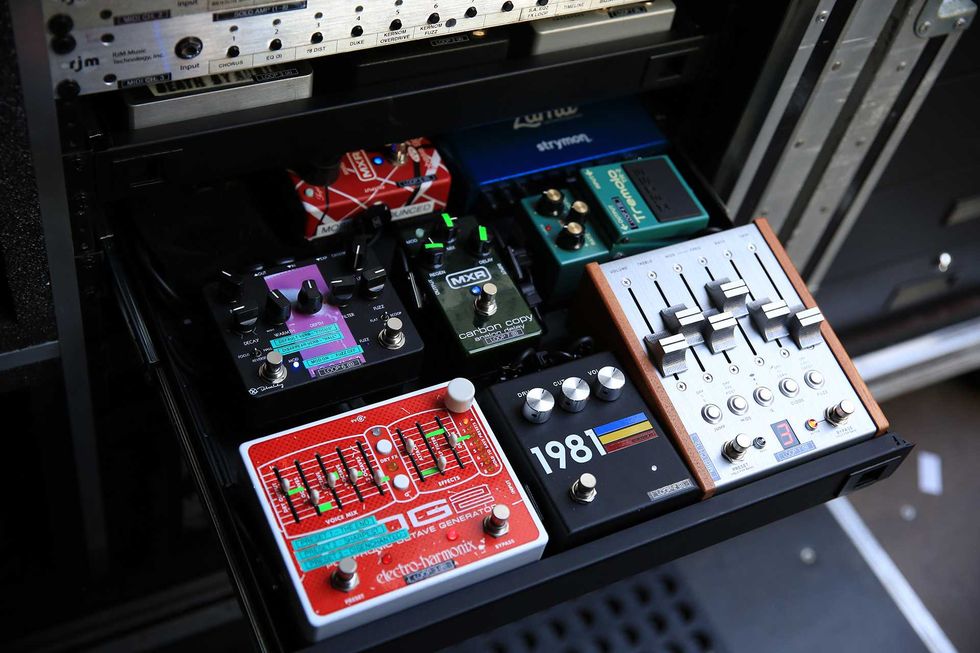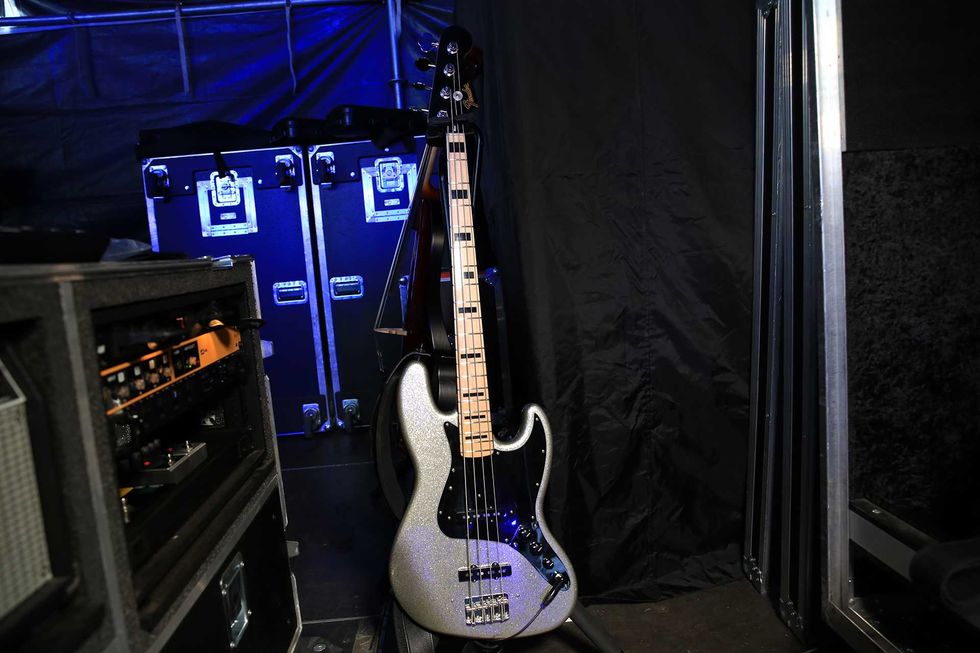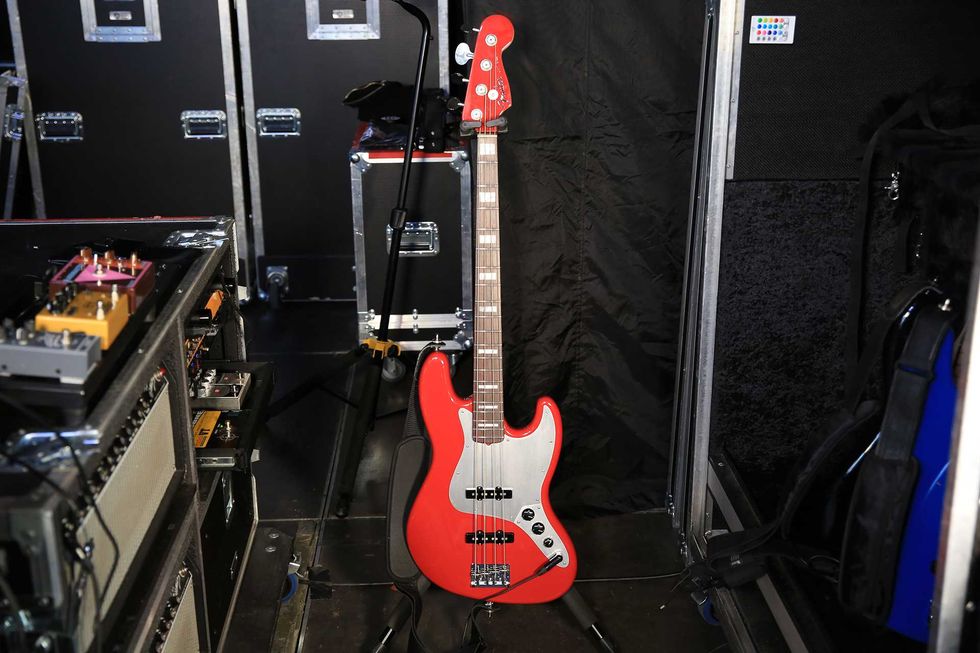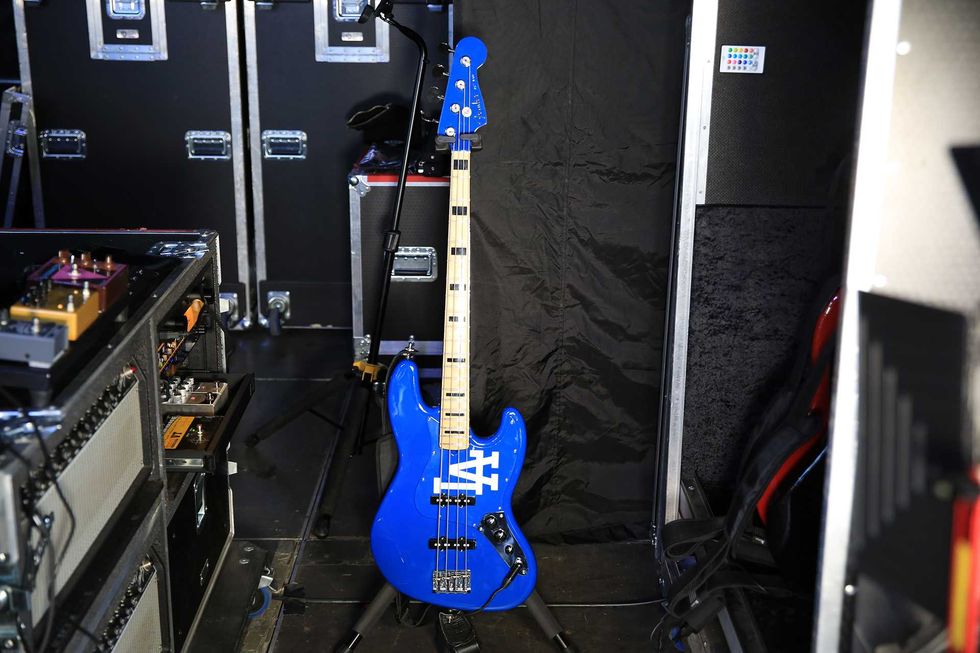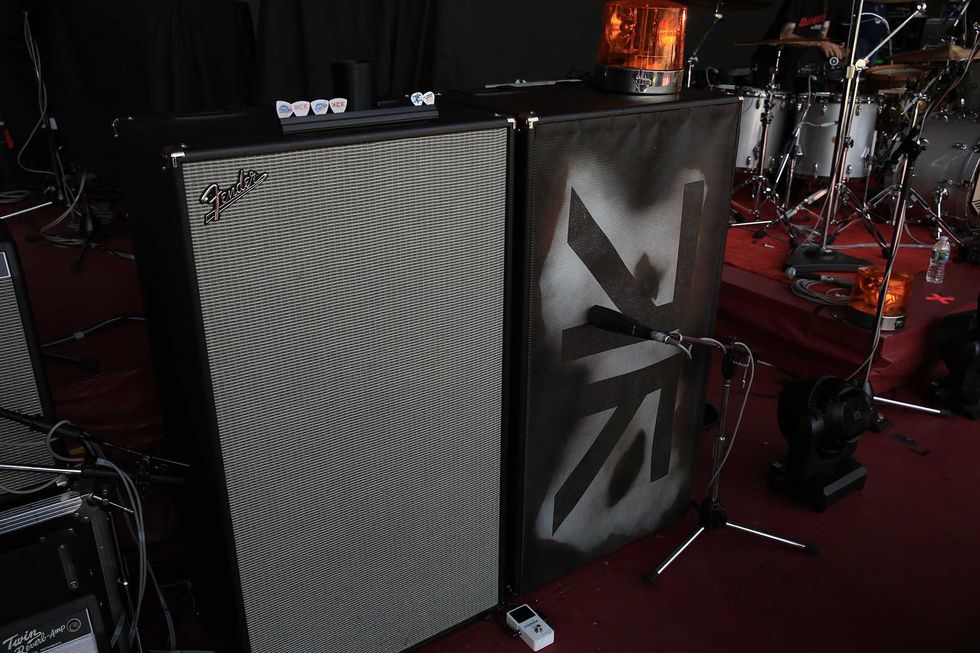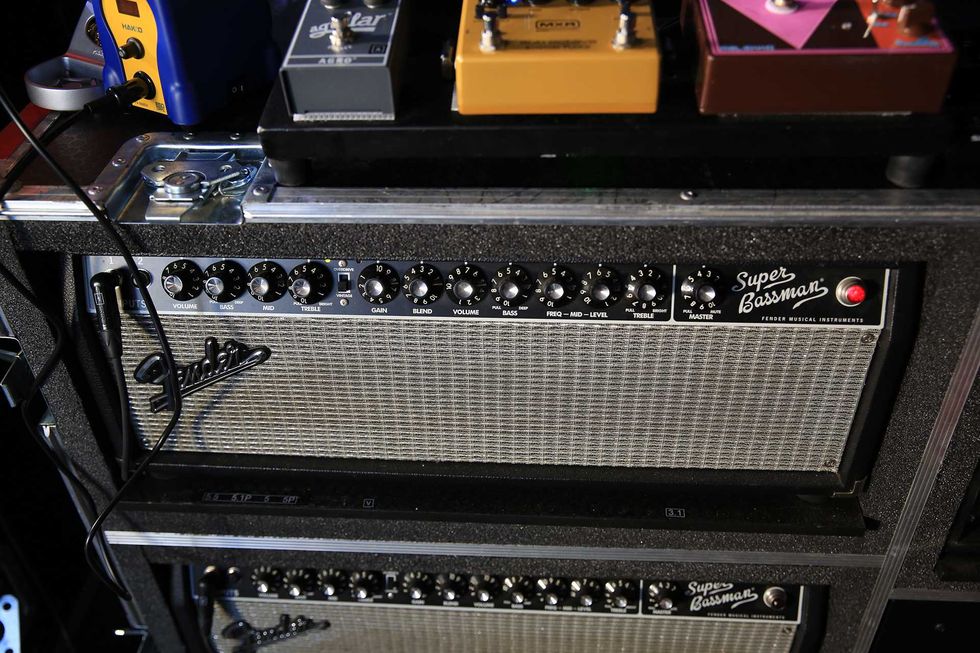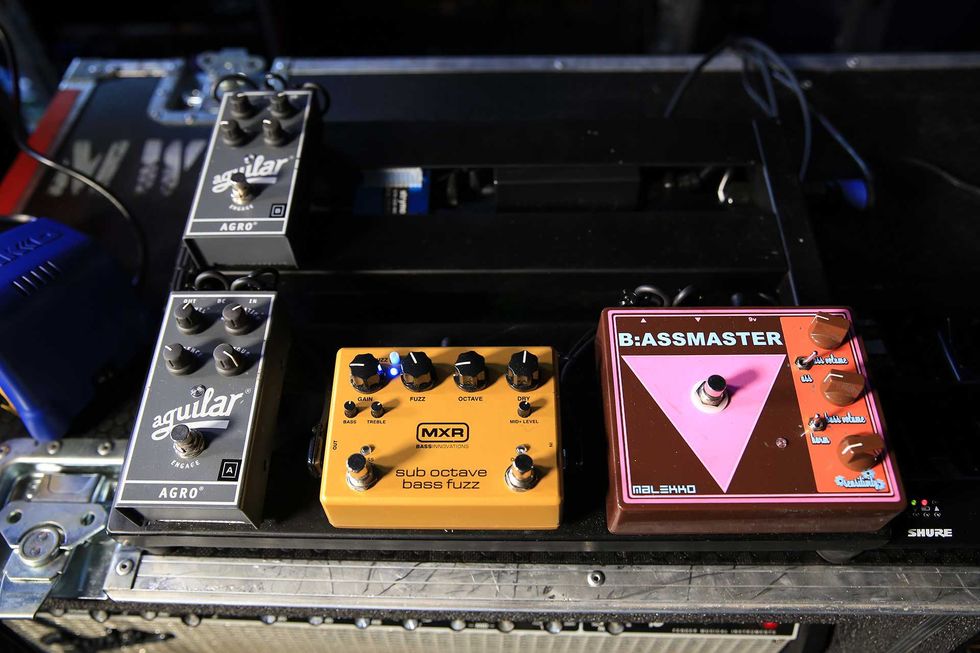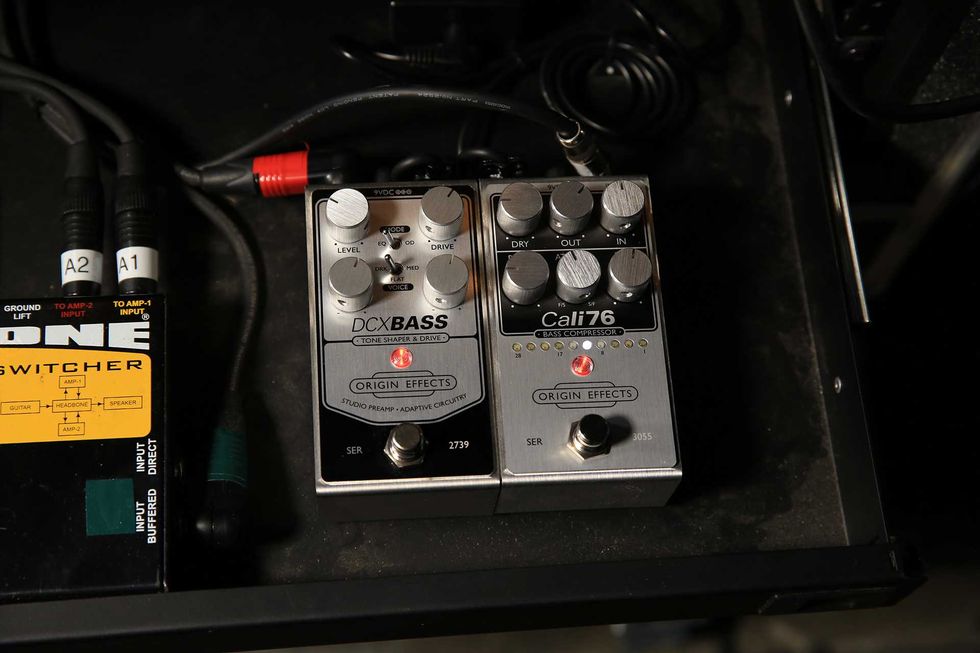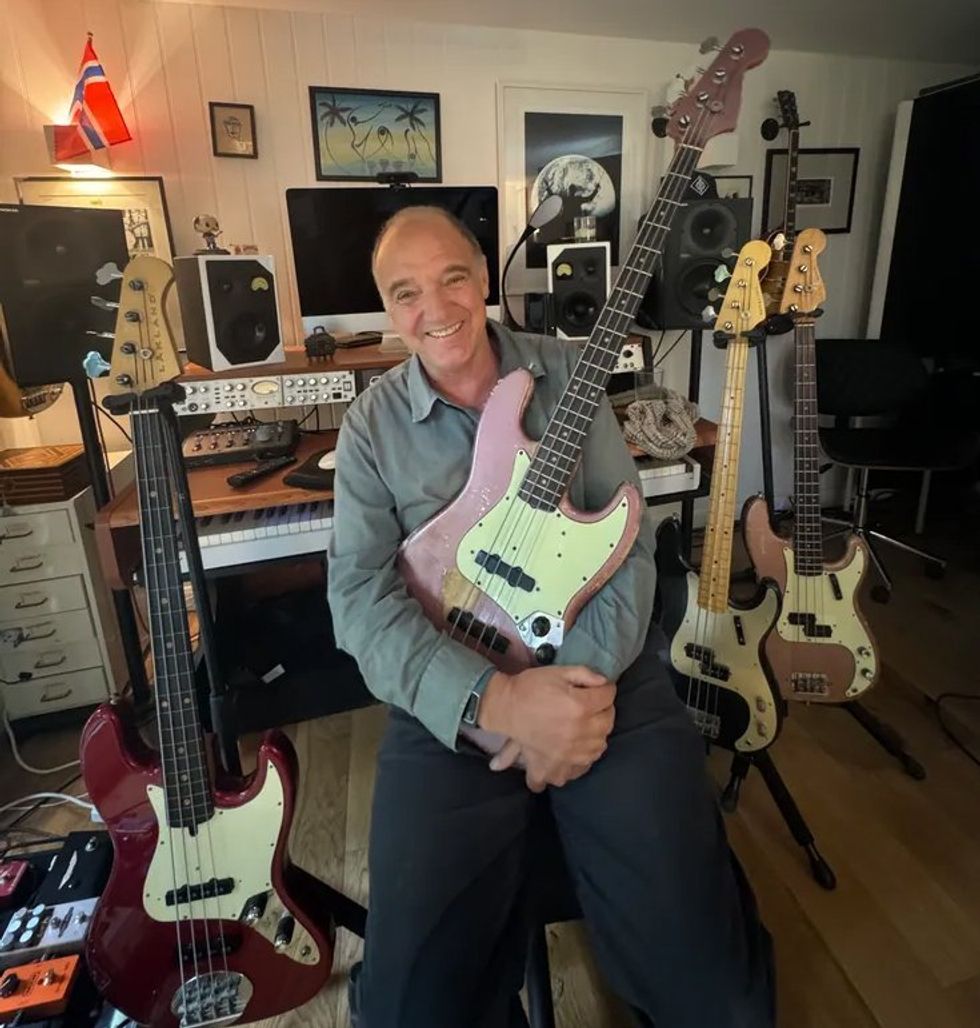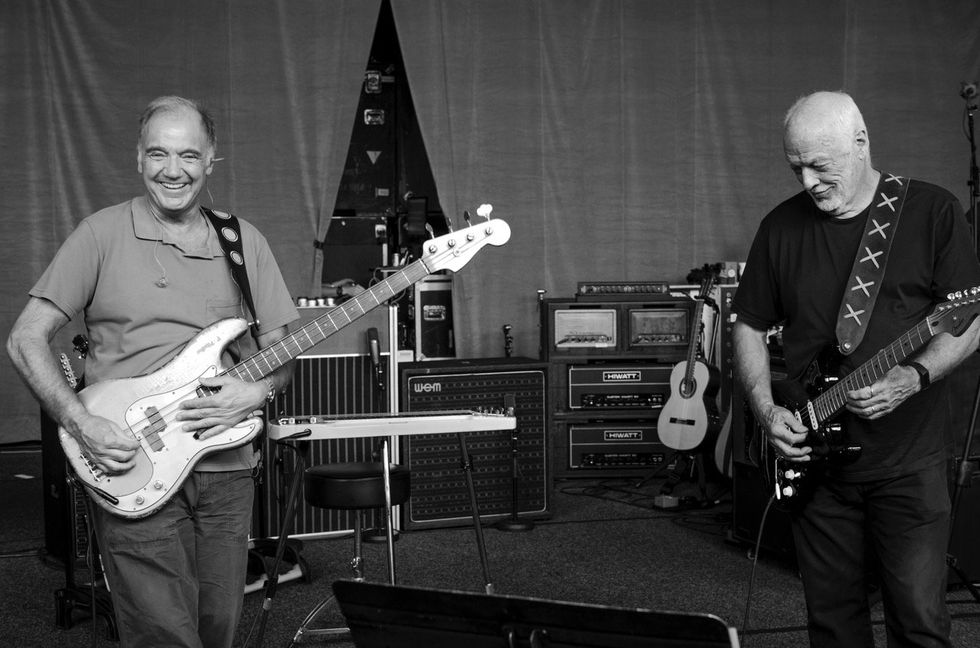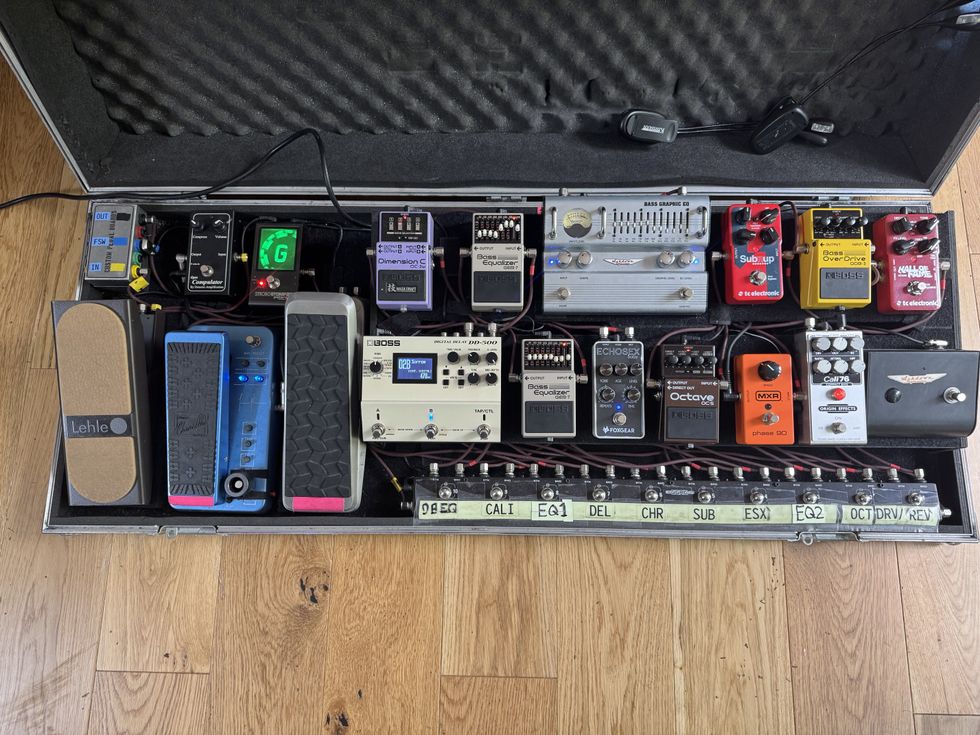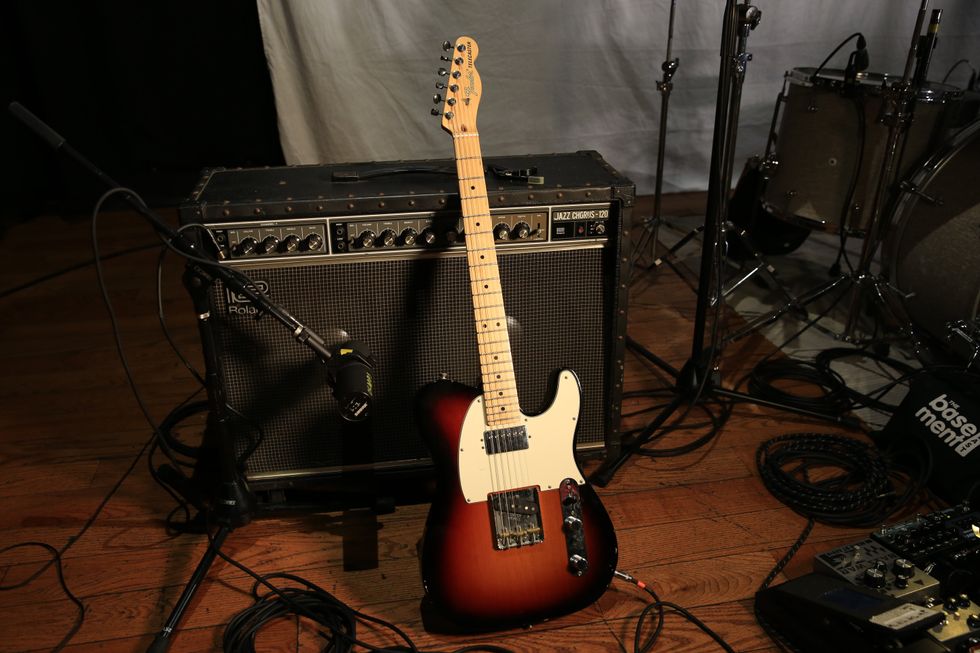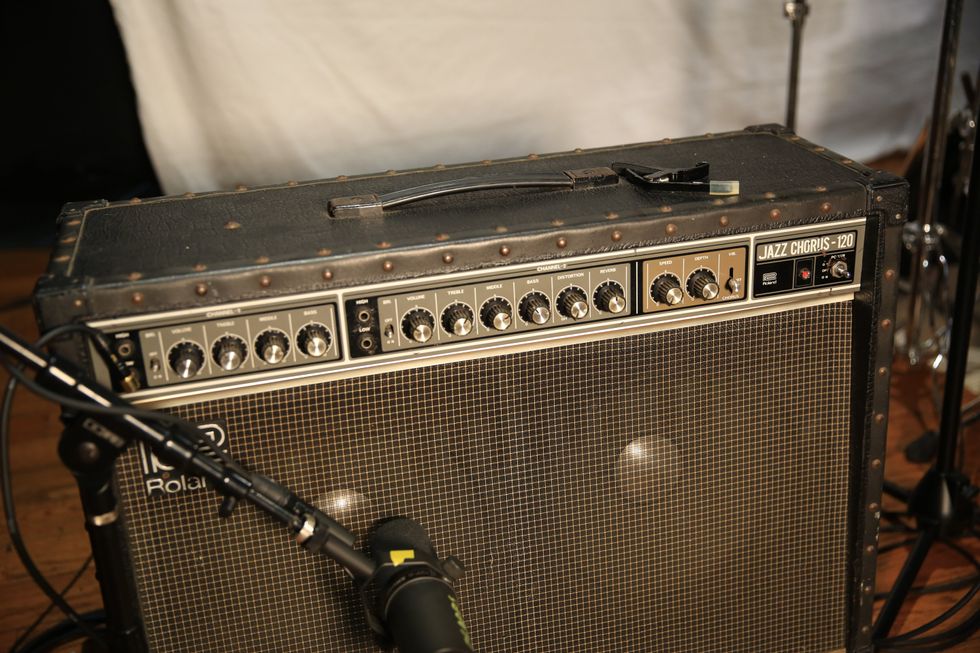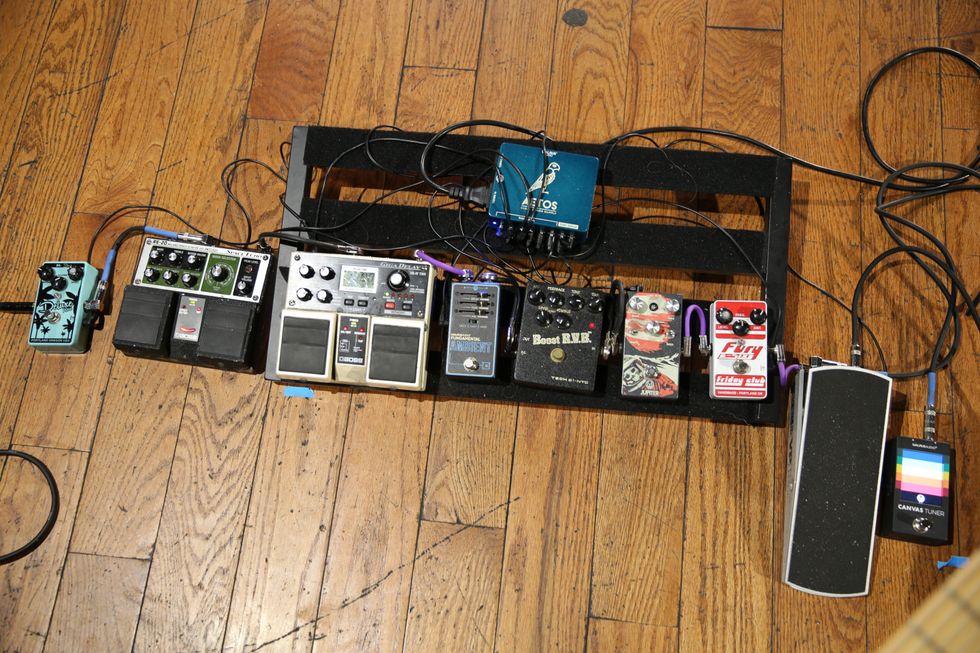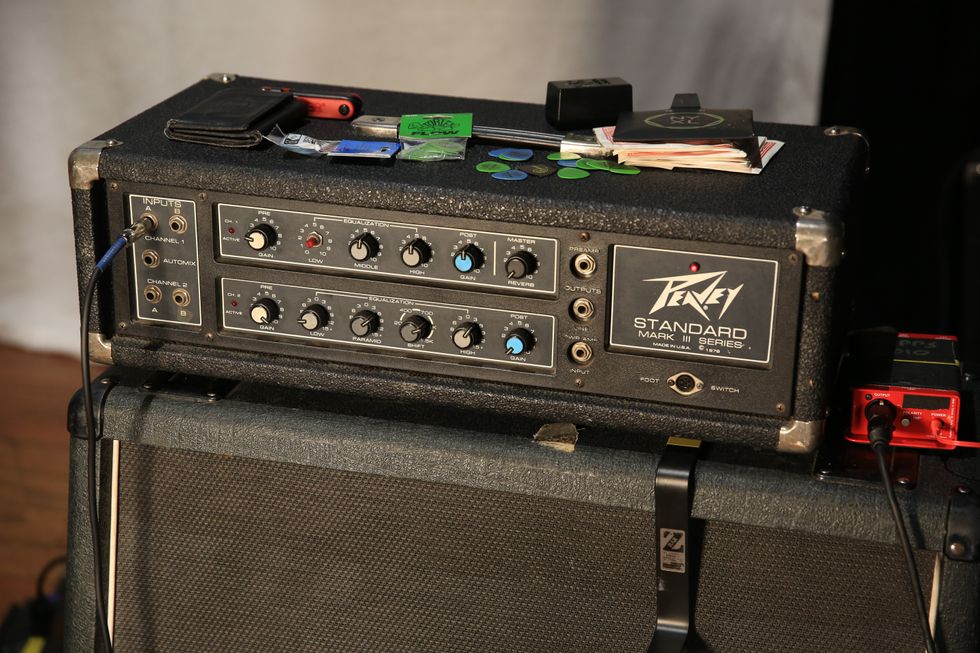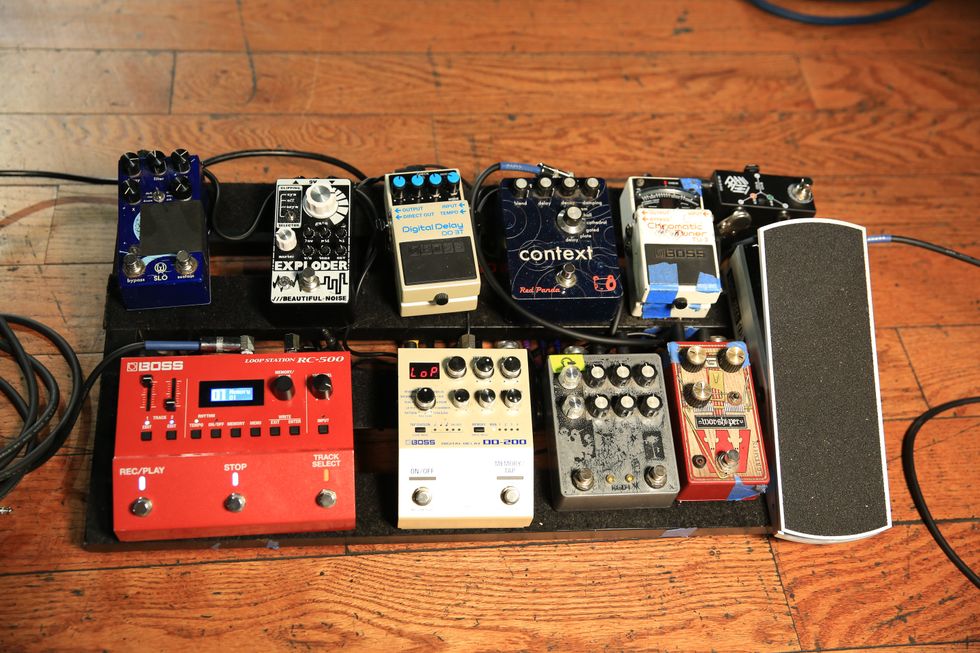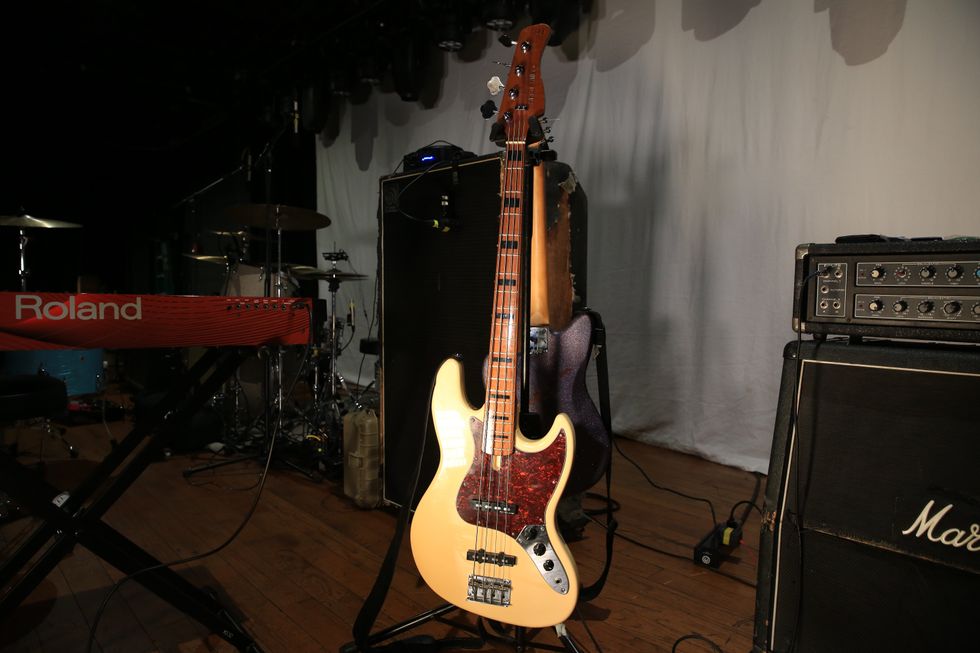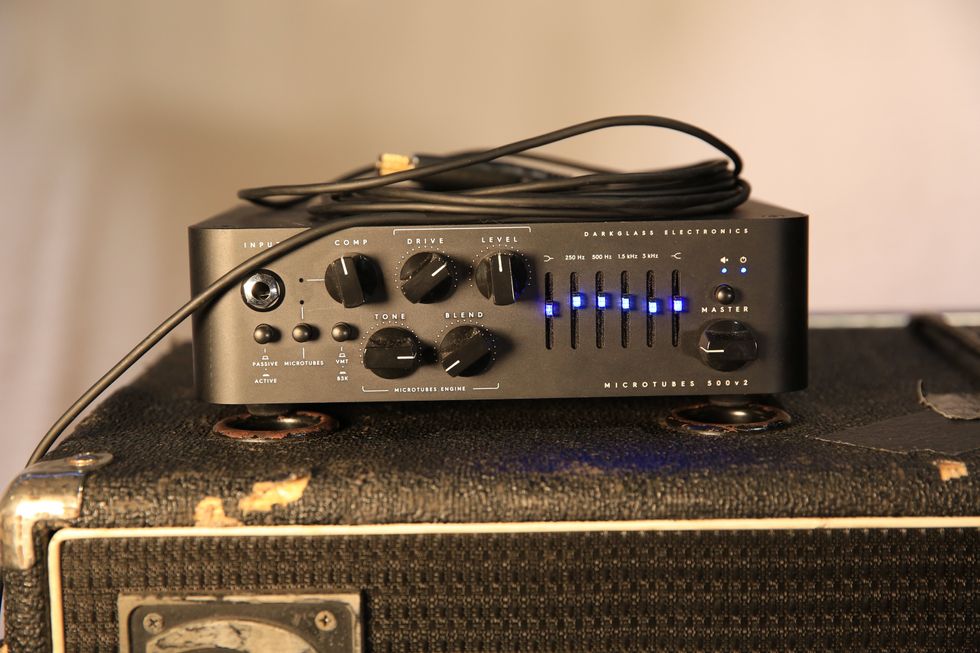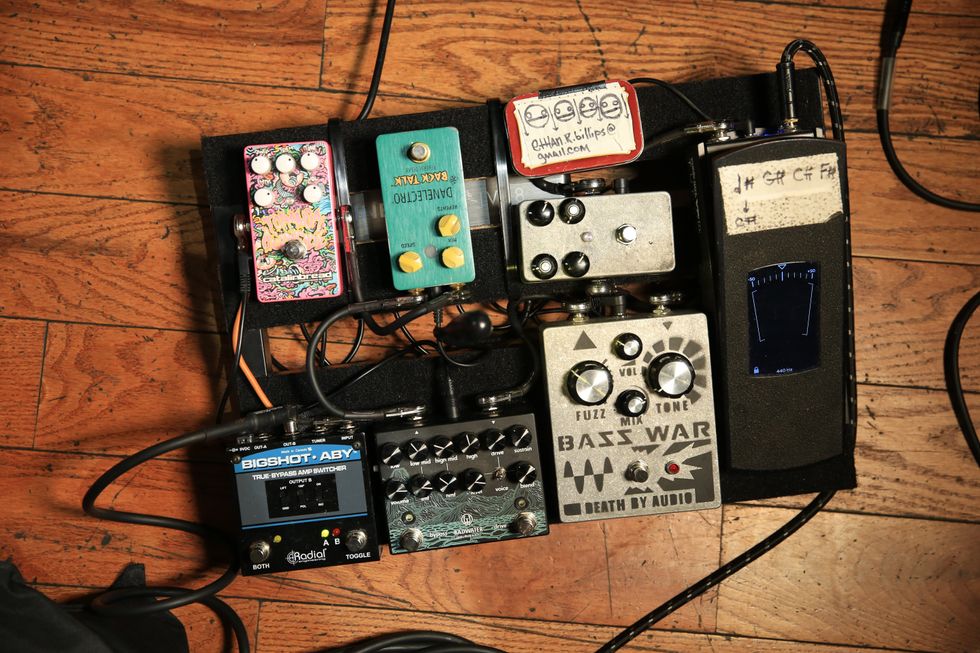Miked with Audio Technica ATM650 into Focusrite Scarlett 2i4 interface into GarageBand using ’70s Epiphone Scroll bass.
Clip 1 - Bass at 1 o’clock, low-mid at 1 o’clock, high-mid at 1 o’clock, treble at 1 o’clock, gain at noon. Compression switch on.
Clip 2 - Bass at 2 o’clock, low-mid at 2 o’clock, high-mid at 11 o’clock, treble at 10 o’clock, gain at noon. Fuzz switch on. Compression switch on.
RatingsPros:Impressive volume. Nice EQ. Onboard fuzz and compression. Cons: Clunkier to move around than a little combo—a small price to pay for its hip factor. Street: $379 Vox Mini Superbeetle Bass voxamps.com | Tones: Ease of Use: Build/Design: Value: |
Like the Mini Superbeetle released for our guitarist friends last year, the new Vox Mini Superbeetle Bass is, at least somewhat aesthetically, based on the monstrous rigs the Fab Four favored in the mid ’60s.
The small, 4 1/2-pound amp head manages to squeeze in a 4-band EQ—including dials for both low-mid and hi-mid—as well as volume and gain knobs, and a pair of mini switches for fuzz and compression. There is a headphone/line out jack around back (as well as a 1/8" aux in), and the 50-watt amp sits securely on the recognizable chrome frame surrounding the cabinet, which houses a single 8" Vox driver.
The sound from this petite, Nutube-powered rig is surprisingly robust. While the stack itself (18 1/2 pounds total weight) isn’t that much bigger than many typical bass “practice” amps, it can invoke some impressive volume, enough to handle smaller gigs. Also, again for its size, the sound isn’t boxy or tinny, but rather full and warm. I was impressed with the headroom and how far I could push the volume and gain and remain clean. I like the onboard fuzz and compression, though—understanding space limitations for such a small amp’s panel—I would have liked to have seen level controls. But, for the fuzz function in particular, there is plenty of control over its flavor with the EQ and drive controls. I could dial in a warmer, subtle fuzzy tone up to more of a piercing grind, all with a vintage hue. The Mini Superbeetle Bass is distinctively Vox, and is a distinctively moving little rig.
Test gear: Late-’70s Epiphone Scroll bass, Fender Precision, Focusrite Scarlett 2i4, Audio-Technica ATM650


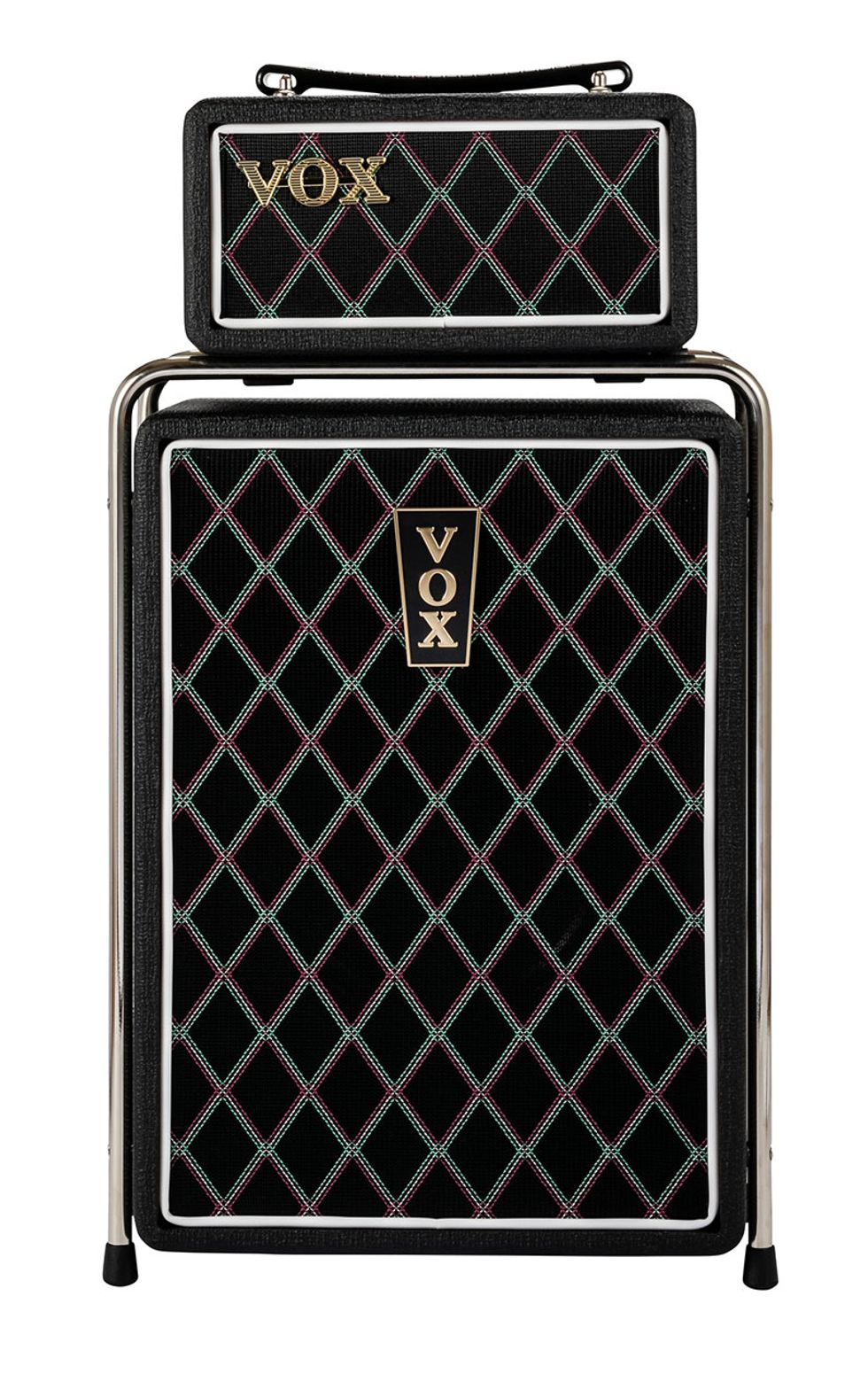

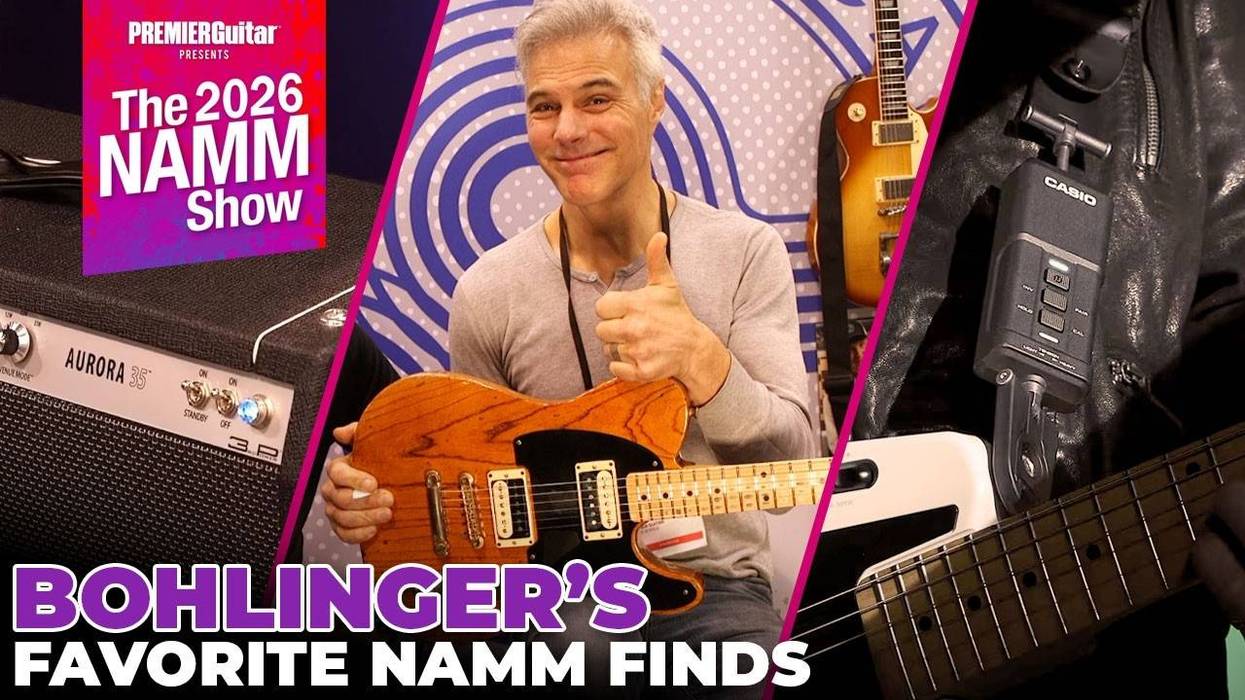
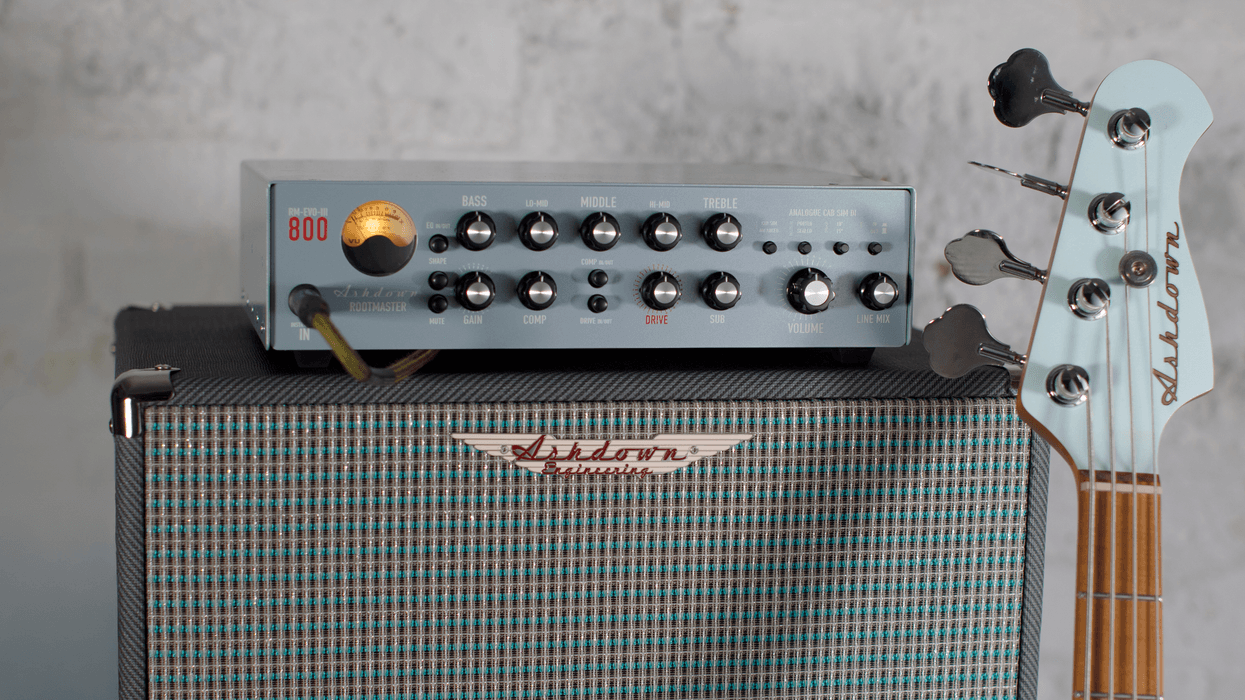


![Rig Rundown: AFI [2025]](https://www.premierguitar.com/media-library/youtube.jpg?id=62064741&width=1245&height=700&quality=70&coordinates=0%2C0%2C0%2C0)












 Shop Scott's Rig
Shop Scott's Rig